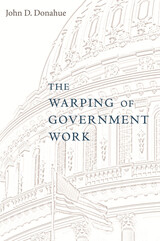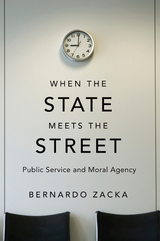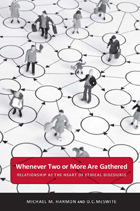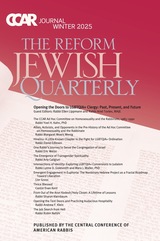6 start with W start with W

Government has become a refuge, and a relic, of America’s crumbling middle-class economy. As the public and private worlds of work have veered in different directions, the gaps between them are warping government work in unintended ways.
Three decades of economic turbulence have rendered American workplaces more demanding and less secure, more rewarding for high-end workers and punishing for workers without advanced skills. This workplace revolution, however, has largely bypassed government. Public employees—representing roughly one-sixth of the total workforce—still work under the conditions of dampened risk and constrained opportunity that marked most of the economy during the middle-class boom following World War II.
The divergent paths of public and private employment have intensified a long-standing pattern: elite workers spurn public jobs, while less skilled workers cling to government work as a refuge from a harsh private economy. The first trend creates a chronic talent deficit in the public sector. The second trend makes the government workplace rigid and resistant to change. And both contribute to shortfalls in public-sector performance.
The Warping of Government Work documents government’s isolation from the rest of the American economy and arrays the stark choices we confront for narrowing, or accommodating, the divide between public and private work.

Most of the world’s population lives in cities in developing countries, where access to basic public services, such as water, electricity, and health clinics, is either inadequate or sorely missing. Water and Politics shows how politicians benefit politically from manipulating public service provision for electoral gain. In many young democracies, politicians exchange water service for votes or political support, rewarding allies or punishing political enemies. Surprisingly, the political problem of water provision has become more pronounced, as water service represents a valuable political currency in resource-scarce environments.
Water and Politics finds that middle-class and industrial elites play an important role in generating pressure for public service reforms.

When the State Meets the Street probes the complex moral lives of street-level bureaucrats: the frontline social and welfare workers, police officers, and educators who represent government’s human face to ordinary citizens. Too often dismissed as soulless operators, these workers wield a significant margin of discretion and make decisions that profoundly affect people’s lives. Combining insights from political theory with his own ethnographic fieldwork as a receptionist in an urban antipoverty agency, Bernardo Zacka shows us firsthand the predicament in which these public servants are entangled.
Public policy consists of rules and regulations, but its implementation depends on how street-level bureaucrats interpret them and exercise discretionary judgment. These workers are expected to act as sensible moral agents in a working environment that is notoriously challenging and that conspires against them. Confronted by the pressures of everyday work, they often and unknowingly settle for one of several reductive conceptions of their responsibilities, each by itself pathological in the face of a complex, messy reality. Zacka examines the factors that contribute to this erosion of moral sensibility and what it takes to remain a balanced moral agent in such difficult conditions.
Zacka’s revisionary portrait reveals bureaucratic life as more fluid and ethically fraught than most citizens realize. It invites us to approach the political theory of the democratic state from the bottom-up, thinking not just about what policies the state should adopt but also about how it ought to interact with citizens when implementing these policies.

This study of the critical role of ethics and moral responsibility in the field of public administration, Michael M. Harmon and O. C. McSwite posit that administrative ethics, as presently conceived and practiced, is largely a failure, incapable of delivering on its original promise of effectively regulating official conduct in order to promote the public interest. They argue that administrative ethics is compromised at its very foundations by two core assumptions: that human beings act rationally and that language is capable of conveying clear, stable, and unambiguous principles of ethical conduct.
The result is the illusion that values, principles, and rules of ethical conduct can be specified in workably clear ways, in particular, through their formalization in official codes of ethics; that people are capable of comprehending and responding to them as they are intended; and that the rewards and punishments attached to them will be effective in structuring daily behavior.
In a series of essays that draw on both fiction and film, as well as the disciplines of pragmatism, organizational theory, psychoanalysis, structural linguistics, and economics, Harmon and McSwite make their case for human relationship as the proper foundation of administrative ethics. “Exercising responsible ethical practice requires attaining a special kind of relationship with other people. Relationship is how the pure freedom that resides in the human psyche—for ethical choice, creativity, or original action of any type—can be brought into the structured world of human social relations without damaging or destroying it.” Furthermore, they make the case for dropping the term “ethics” in favor of the term “responsibility,” as “responsibility accentuates the social [relational] nature of moral action.”

This classic study brings to bear the findings and principles of political science, sociology, psychology, and economics on various proposals for the solution of ills traditionally associated with governmental administration.

Work and the Welfare State places street-level organizations at the analytic center of welfare-state politics, policy, and management. This volume offers a critical examination of efforts to change the welfare state to a workfare state by looking at on-the-ground issues in six countries: the US, UK, Australia, Denmark, Germany, and the Netherlands.
An international group of scholars contribute organizational studies that shed new light on old debates about policies of workfare and activation. Peeling back the political rhetoric and technical policy jargon, these studies investigate what really goes on in the name of workfare and activation policies and what that means for the poor, unemployed, and marginalized populations subject to these policies. By adopting a street-level approach to welfare state research, Work and the Welfare State reveals the critical, yet largely hidden, role of governance and management reforms in the evolution of the global workfare project. It shows how these reforms have altered organizational arrangements and practices to emphasize workfare’s harsher regulatory features and undermine its potentially enabling ones.
As a major contribution to expanding the conceptualization of how organizations matter to policy and political transformation, this book will be of special interest to all public management and public policy scholars and students.
READERS
Browse our collection.
PUBLISHERS
See BiblioVault's publisher services.
STUDENT SERVICES
Files for college accessibility offices.
UChicago Accessibility Resources
home | accessibility | search | about | contact us
BiblioVault ® 2001 - 2025
The University of Chicago Press









